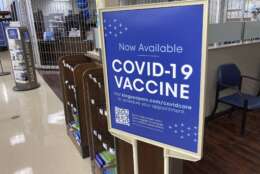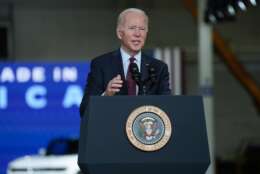Federal Report
-
A continuing resolution through February doesn't necessarily change the White House's plans for a federal pay raise for civilian employees next year. But while agencies have staved off another government shutdown threat for now, there's still plenty of dysfunction ahead.
December 06, 2021 -
You can't personally change perceptions of federal employee ... or can't you?
December 03, 2021 -
The anti-HMO feeling many have could be costing them money in premiums and good service. There are a wide array of HMOs available to federal workers/retirees during the current open enrollment period.
December 02, 2021 -
Federal workers, retirees or their survivors have 12 more days to pick the health plan that will cover them and their families next year.
December 01, 2021 -
This open season, it's more important than ever that you shop around. If you’ve been in the same plan for 3-to-5 years, it may not be your best buy.
November 30, 2021 -
Instead of closing new Grand Junction headquarters, BLM will now have two headquarters.
November 29, 2021 -
Come Jan. 1, health insurance plans must treat emergency services performed out-of-network as if they were done in-network. The new rules apply to almost all major public and private health insurance plans, including the Federal Employees Health Benefits Program.
November 26, 2021 -
Do a little shopping now and save a bundle next year. And maybe get even better coverage.
November 25, 2021 -
What’s the single most important reason to shop around for health insurance? Two very important words — catastrophic coverage.
November 24, 2021 -
For most workers, the perfect time to retire, the moment when it seems just right, depends on lots of things ranging from health and family situation to the stock market.
November 23, 2021 -
Some agencies are tentatively setting reentry dates early next year. The Biden administration acknowledged those dates are stirring up some anxiety among some retirement-eligible feds who have been teleworking full time for nearly two years.
November 22, 2021 -
More than 90% of GSA's contractors have signed agreements incorporating the mandate into their contracts, including 95% of vendors on GSA's Federal Supply Schedule.
November 19, 2021 -
Presidents' management agendas tend to look alike, but the nuance can indicate significant differences.
November 19, 2021 -
With 30-plus plans to choose from, many working feds and retirees go into shutdown mode and do nothing during the annual health insurance open season. This year it ends on Dec. 13. But that won’t help if you don’t shop around. Inertia is easy.
November 18, 2021 -
The FEHB open season runs through Dec. 13. so there is still plenty of time to compare plans, in addition to your current carrier, and compare their premiums, benefits, drug coverage and physician network.
November 17, 2021














